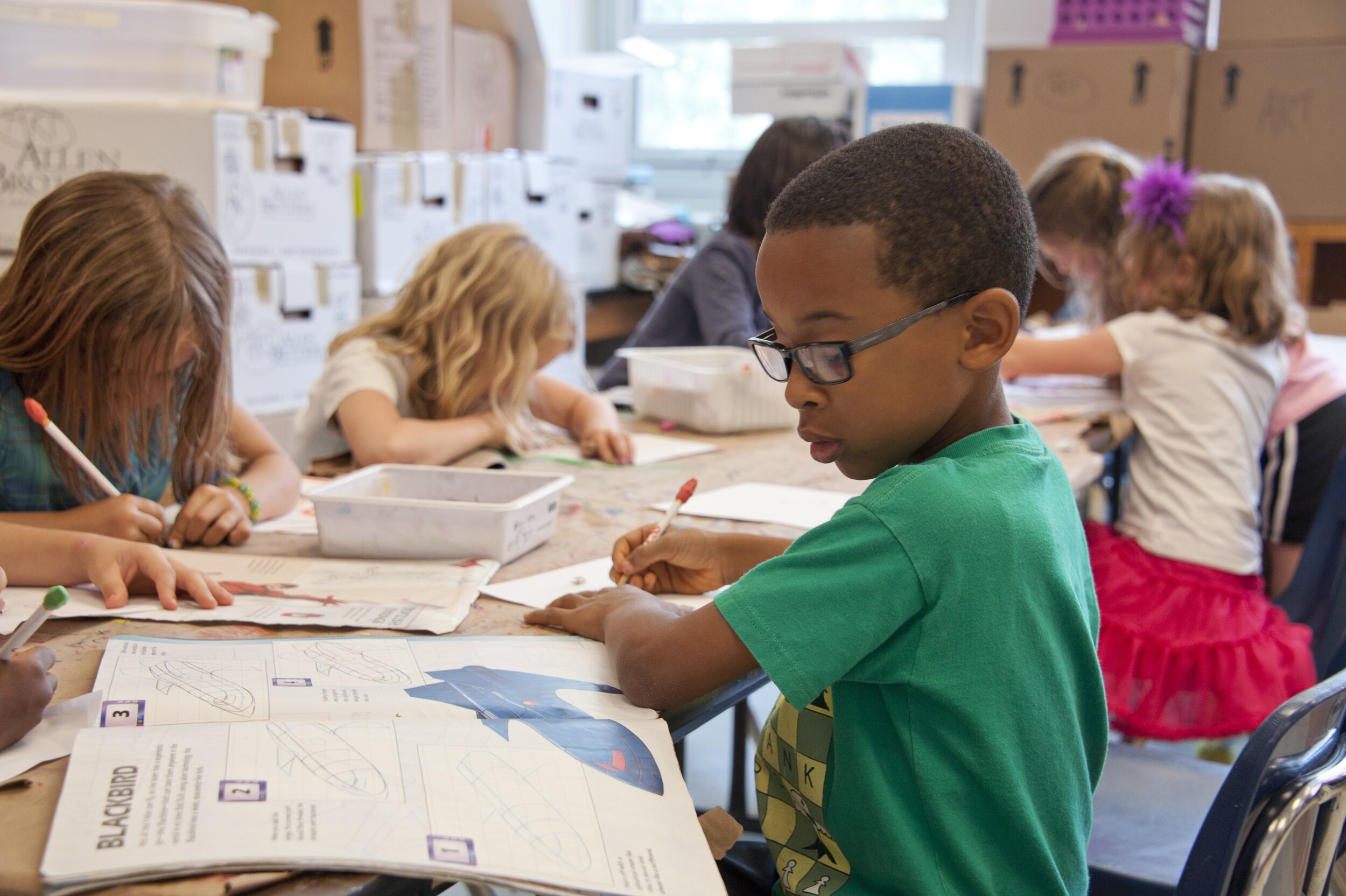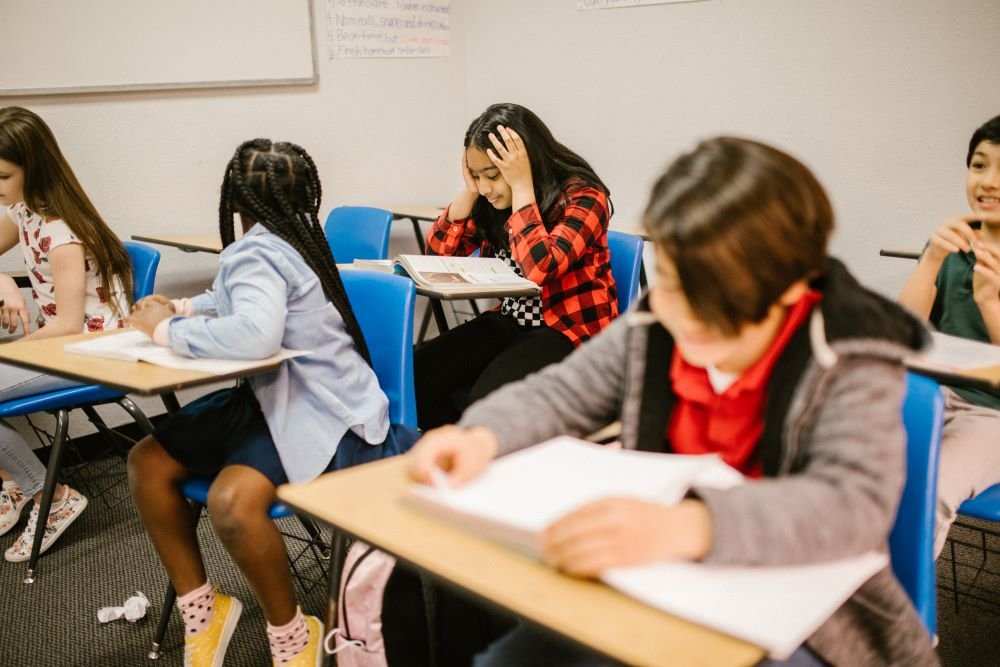
FWCL Blog
Essays written by our talented instructors on their experience as educators and the psychology behind learning
Lindamood-Bell and Orton- Gillingham: A Comparison of Effective Reading Strategies
by Sami Kugler
Director of Instruction
At the Fort Wayne Center for Learning, the programs used to help bring students up to grade-level expectations are the Lindamood-Bell intensive programs. However, there are many different methodologies used in various literacy interventions that are evidence-based and effective. For example, many teachers in Northeastern Indiana are trained in Orton-Gillingham reading instruction. How do parents decide which intervention is best suited for their child? In this article we will take a look at both Lindamood-Bell and Orton-Gillingham and compare and contrast their strengths. Read more
Recharge and Refocus: The Power of Brain Breaks for Youth Learning and Well-Being
by Sami Kugler
Director of Instruction
At the Fort Wayne Center for Learning, we encourage our students to work their hardest each and every day. Our instruction requires them to use parts of their brains that they may not have exercised before. However, we also encourage students to take frequent, brief breaks during their sessions for various reasons. “Brain breaks” are more than just a time to rest, they give the brain a chance to decompress and process the new information it is learning! Read more
What is Growth Mindset?
by Lori Lehman Executive Director
Growth Mindset is a theory developed by psychologist Dr. Carol Dweck that categorizes people as having either a closed or growth mindset. Generally speaking, a closed mindset person is less open to learning new things than a growth mindset person. This is important to teachers, parents, and anyone who wants to improve themselves because it helps us understand how we approach new challenges and what motivates us when learning. Read More
Anxiety and Learning
by Lori Lehman Executive Director
Have you ever experienced anxiety? I bet most of us have had a stressful situation that caused us anxiety. This is situational anxiety; chronic anxiety is much different. 19.1% of adults and 31.9% of adolescents have persistent and chronic anxiety which is much higher than in decades past. People with chronic anxiety become anxious with many day-to-day activities, and it can be debilitating. With so many of our students and young adults suffering from anxiety, I wonder, how does this affect their learning? Read More
The Power of Asking Questions
by Lori Lehman Executive Director
How often do you use Google to get a quick answer? Like, what time does the store open? How do I get to that place on the other side of town? Who played Ross’s girlfriend in season 6 of ‘Friends’? I look up questions as soon as they pop into my head. The amount of information found on the internet is so vast that I don’t know if there are unanswerable questions anymore. According to Google's Annual Search Statistics, 4.7 trillion Google searches are performed every day. Compare that to just 9,800 a day back in 1998 and you can see how much our use of the internet has changed. Read More
Attention-Seeking Behavior
by Sami Kugler
Director of Instruction
We are all “Attention-Seekers”- and that’s okay!
A seven-year-old girl is at a doctor’s appointment with her mother. The mother and the doctor are having a discussion, but the daughter is standing in the corner of the room spinning in a circle saying “Mom! Mom look! I’m spinning so fast!” The mom asks the girl to wait one moment for their conversation to finish and turns back to the doctor. The daughter’s response is to act dramatically dizzy and fall to the ground with a loud “OOF! I fell!” Is this attention-seeking? And if so, is that an inherent “behavior issue”? Let’s talk about that! Read More
Why do tasks get easier the more we do them?
by Lori Lehman
Executive Director
Ever wonder why things get easier the more you do them? Or, if we can actually get smarter over our lifetime? Many people believe that you are either born smart, or not, and nothing will change that. Many neuroscientists believe that the brain is more like a muscle and the more you work it, the stronger it gets.
Read More
Games can make me smarter?
by Lori Lehman Executive Director
If you’re like me, you grew up playing a variety of games with your friends, family, and siblings. I played Connect Four with my mom while I waited for the bus. On snow days we always played Monopoly, a tradition I continued with my own family. On warm summer evenings, we played baseball in our backyard. Now we play games on most holiday get-togethers and do a puzzle on the occasional weekend. I also love to zone out and let my brain relax while playing a puzzle or matching game on my iPad. Read More
Top 10 Ways You Can Help Your Child Be Successful in School
by Sami Kugler
Director of Instruction
As the end of the Fall semester approaches, here are ten things to help your child be successful in school:
1. Set an example: model the behaviors you are seeking.
If they see you reading, they will be more likely to do so. If you value learning, they will too. Discuss a routine with your child: a designated place and time to do homework every day. Make sure all materials are readily available to them. Encourage them to study as a daily habit, rather than cramming the night before a test. Encourage their curiosity and relate things to real life. Read more
Common Misconceptions of Dyslexia
by Sami Kugler
Director of Instruction
Dyslexia- it’s a buzz word that gets thrown around a lot when a child struggles to read. But there is more to dyslexia than struggling to tell the difference between B’s and D’s. Let’s take a look at seven common misconceptions about dyslexia and how harmful they can be to students. Read more
Hidden Trauma: How the pressures of school can alter your child’s brain
by Sami Kugler
Director of Instruction
Picture this: you are a 2nd grader who struggles to read. You spend time actively avoiding tasks related to reading- they make you too uncomfortable. You have been laughed at in the past for struggling to read aloud in front of your classmates. You feel as though all eyes are on you when you get pulled from class to work on reading with a different teacher. You fear that your peers think that you’re stupid. You feel ashamed that you cannot read the instructions on your homework and aren’t sure what to do to complete it. Rather than ask for help (and risk looking “dumb”), you just “lose” your assignment and don’t turn it in. These situations are all daily stressors to students across the country. Gone unaddressed, repeated exposure to these stressors each day at school (or each night working on homework) can turn into what researchers call “toxic stress”, which, over time, can manifest itself as trauma. Read more
The power of relationships, effort, and expectations in learning
by Jennifer Parry
Instructor
I have attended staff meetings at the Fort Wayne Center for Learning for the past 7 years, learning about our upcoming students. There have been a variety of ages, learning differences, and backgrounds, and their needs span all three of our intensive programs. It is a daunting task to bring each student as far as possible in their programming in only 6 weeks. We will teach each student as quickly as we can, but as slowly as we must. Read more
“I can’t do math!”
Self-fulfilling prophecies in learning
by Steve Weaver,
Former Instructor
Have you ever heard your student, or any student, say something like, “I can’t do math!” Maybe you’ve heard, “I’ll never understand chemistry! While I have said this many times to myself in high school and college, I no longer think chemistry is Satan incarnate.
As I’ve gotten older, I’ve reflected back on how I missed some chances to really understand chemistry and do some spectacular things because of what I told myself. Read More
Building GRIT
by Kayla Mayers,
Former Instructor
Angela Duckworth is the leading voice on the topic of grit. Grit is the ability to sustain attention and effort toward long-term goals. She admits that her research on grit is still on-going and that she hopes to one day share her findings on how to actually build grit in children. Read More
Relationships: Why they're fundamental to learning
by Steve Weaver,
Former Instructor
Would you buy a car from a person you never met - sight unseen? Would you allow a contractor you never heard of to build your new dream house? Would you go on a scuba dive with an uncertified dive instructor you only talked with briefly? Would you go out on a blind date to a desolate canyon?
Read More
Confidence and optimism for dyslexic awareness month
by Mark A. Thomas,
Former Director of Instruction
Here we are, in the middle of Dyslexia Awareness Month, during which our goals are to share resources and success stories. If you or someone you know has battled dyslexia, then you likely could benefit from some optimism and positivity. Well then, allow me. Read More


















